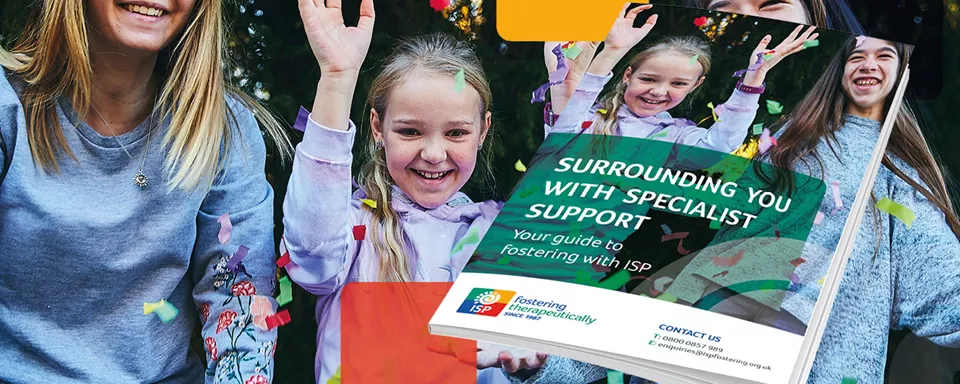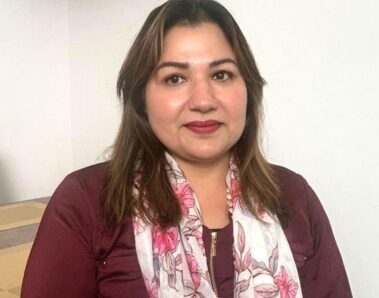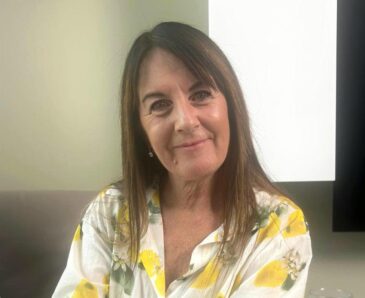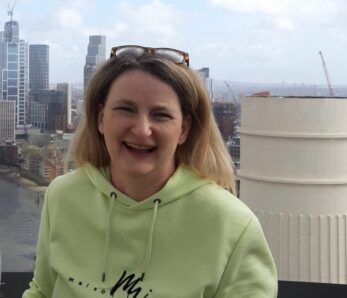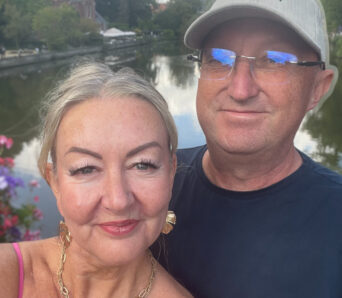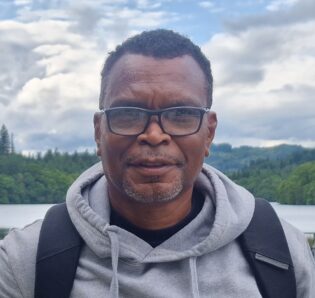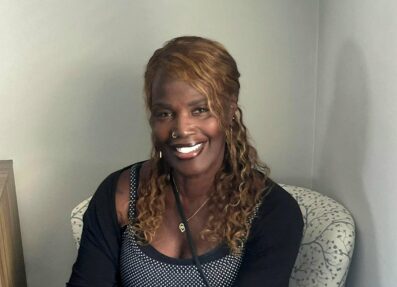Bev has been caring for children with ISP since 2020. With a vast career in caring roles and a real dedication to helping children, Bev is a shining example of what makes an amazing ISP foster parent.
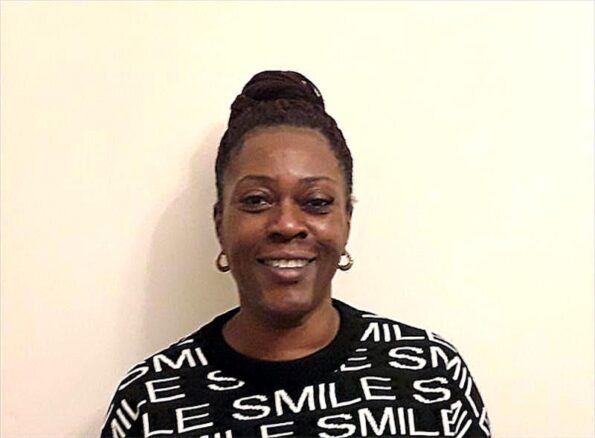
CARING AS A LIFESTYLE
Bev has enjoyed a colourful career which has provided her with heaps of experience and transferable skills which laid the groundwork for becoming a foster parent. She said:
“I’ve always been interested in people, and I’ve always been in a caring role. I spent 16 years working in a children’s hospital where I started as an auxiliary nurse before becoming a play specialist. It was my job to help children understand operations and what being poorly meant to them through play. I loved this job; it was incredibly rewarding but also emotionally challenging.
“I’ve also worked in a school for children with additional needs, a parenting assessment centre, and in a role where I visited vulnerable families in their homes. Those jobs gave me a real insight into what some parents go through, and how best to help children and their families.”
Though Bev had a bustling work life, fostering had always been at the back of her mind. She said:
“My husband and I had wanted to foster as far back as 38 years ago when we had our first child, but the agency I contacted told me it wouldn’t be the right time as were going through such a big transition by becoming new parents. Looking back, I think that was the right decision for us at the time. My husband sadly passed away a few years ago, after which I began thinking about fostering again.”
A PROTECTIVE BUBBLE OF SUPPORT
With a storied career in supporting children and their families through difficult circumstances, Bev was the ideal candidate to foster with ISP as a therapeutic foster parent. She said:
“I was drawn to ISP in particular because I liked how well their emphasis on therapeutic care aligned with my own background and history. ISP has been great to work with. I get lots of support through visits with my supervising social worker and there are so many opportunities to meet other foster parents.”
“That support has been vital throughout my fostering journey. It can be really hard if you are fostering on your own. As a single foster parent, you need to lean on the network around you, particularly if there isn’t anyone in your immediate family who can help. In the beginning, fostering was far from easy. I think I came into it thinking it was as simple as giving a child a safe home away from the challenges they’d been exposed to. I don’t think I had a real awareness of just how much trauma can affect a young person in every aspect of their life, from their development to their understanding of the world.”
FINDING THE RIGHT MATCH
It took Bev some time to settle into fostering and to find an arrangement which felt right for her. On the topic of matching a child with a family, she said:
“Sometimes it can take time to find the right match. There were times in my early days of fostering when I wondered if fostering was really right for me, and it was disheartening to feel like I hadn’t been the right match for a child. It made me question my abilities as a foster parent.”
“Even though we as foster parents want to help every child, what I’ve learned is that it’s important to know your own limits before saying yes to a match and that it’s perfectly healthy to have boundaries around what needs you can and can’t cater for in your home. At the end of the day, if a child is living with you, you will be together 24/7, so you need to be totally comfortable around one another.”
Bev believes that she has found the ideal match with her current foster child, who has been living with her for the past seven months. She said:
“I’ve looked after children from all different backgrounds, and what I’ve learned is that sometimes a match goes beyond the typical things we take into consideration when matching children and foster parents, such as their culture. My foster daughter and I don’t share the same cultural background. We also communicate very differently as she lives with selective mutism, and yet we are a perfect match. Having worked for so many years at the children’s hospital, her unique way of communicating didn’t phase me one bit because I knew that we’d find our own way of doing things.”
“To any foster parents who have experienced challenges around matching – or are worried about the process – I’d say don’t be discouraged and speak with your supervising social worker if you need any extra support around matching.”
WHEN A HOUSE BECOMES A HOME
Though Bev and her foster daughter are an ideal match, things weren’t always easy in the beginning. Bev said:
“My foster daughter has been through so much, just like any other child who has experience of being in care. On her first night with me she came to me with a handwritten note. It said that, while she’d tried her hardest to settle in, she needed to go home to her mum and dad. My heart broke for her. Whatever a child has experienced at home, being removed from their family can be a whole other trauma. The next morning, after she’d spent the night in her new bed, I told her how amazing she was, and she gave me a shy smile. I was so proud of her for being so brave.”
“Our relationship built from there, day after day, and now we’re so close. My proudest moment has to be when she came home after a week of respite with another wonderful foster family. She was eager to share how amazing their home was compared to ours and was filled with stories about their enormous playroom. I asked her what made her want to come home, and she looked at me and quickly wrote down: “Because I’d miss you.” It was a beautiful moment. I could never ask for more of a reward than that. She’s the centre of my world.”
ADVICE FOR NEW FOSTER PARENTS
We asked Bev what she’d say to anyone who’s thinking about becoming a foster parent. She said:
“I’ve learned so much since I started fostering, and there is always more to learn with ISP. One thing I’d say to people is, don’t think that fostering is going to be easy, because it’s not. I think many of us foster parents want to wrap our arms around a child and love them, thinking that will fix everything for them, but there’s so much more to healing from trauma than what love alone can give.”
“You have to have nerves of steel, thick skin and a robust sense of humour. You need to put your foster child first in all things. You can foster as a single person, but you can never foster alone— you need a network of support. If you can find that inner strength and people around you who will be there to support you, there is nothing more rewarding than fostering a child.”
JOIN FOSTER PARENTS LIKE BEV IN MAKING A DIFFERENCE
Could you become a foster parent with ISP? We specialise in providing therapeutic fostering to children and young people across the UK, and we’re always looking to welcome more people who are passionate about helping children to join us as foster parents. Contact us today to learn more about fostering.
